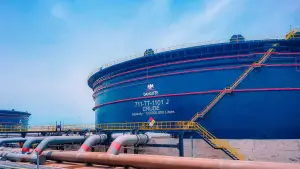The Centre for Economic Justice and Social Equity (CEJSE) has issued a strong rebuke against the Ministry of Finance and the Office of the Accountant-General of the Federation, accusing them of gross negligence over persistent non-payment of contractors who have completed government projects across Nigeria.
In a statement released on Thursday by CEJSE President Dr. Ibrahim Okehi Omeiza, the organization warned that the federal government's continued delay in settling contractual obligations is creating dangerous economic ripple effects throughout the Nigerian economy.
"Contractors are the lifeblood of national development. They are builders, service providers, and employers. When they are owed for months and sometimes years, it leads to layoffs, defaults on loans, and a breakdown of local economies that depend on them," Omeiza stated.
Economic Injustice and Systemic Failure
The civil society organization described the situation as a form of economic injustice, noting that many affected contractors secured high-interest loans from Nigerian banks to complete government projects, only to face significant barriers when seeking payment.
"It is unconscionable that after fulfilling their end of a legally binding agreement, contractors are made to go from one ministry to another like beggars," Dr. Omeiza said. "This is not just a fiscal issue; it's a moral one."
According to CEJSE, some contractors with fully executed and certified projects have waited up to 18 months without receiving payment, despite multiple follow-ups and documented approvals. The organization expressed concern that while budgetary allocations for these contracts had already been made, the funds were either being withheld or diverted without accountability.
Real-World Consequences
The group emphasized the human cost of these payment delays, stating: "When a contractor shuts down due to non-payment, workers are sent home. Markets that supply building materials are affected. Families go hungry. Children are withdrawn from school. We are watching a chain reaction of despair."
CEJSE warned that the continuous withholding of payments would deter future investment and damage public-private sector relations, ultimately undermining Nigeria's infrastructure development goals.
"How do you build national infrastructure without a trusted, functioning contractor system? No local or international partner will want to work in a climate where payment is uncertain," the statement read.
Call for Immediate Action
The organization has issued what it describes as a "final opportunity" for the administration to address the situation, threatening legal and civil actions if the payment issues persist.
CEJSE called for three immediate actions: the release of outstanding payments to all contractors who have completed and certified their projects, a public audit of the delay pattern, and a commitment to systemic reform in how contractor payments are processed across ministries and agencies.
The group has vowed to mobilize other civic and legal actors to defend affected businesses if their demands are not met, signaling a potential escalation in pressure on federal financial authorities.













